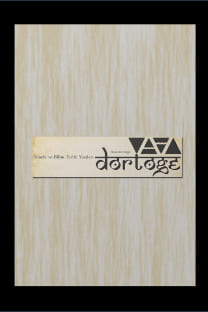ARİSTOTELES’İN TEOLOJİSİ VE İSLAM FELSEFESİ ÜZERİNDEKİ ETKİLERİ: BİR YANLIŞIN SONUÇLARI ÜZERİNE
Felsefe tarihindeki en garip şeylerden birisi Aristoteles’in Teolojisi adlı yapıtın tarihidir. Söz konusu çalışma Arapça’ya çevrilen en uzun ve en ünlü metindir. Gerçekte ise o, Plotinos’un Enneadlar’ının bir versiyonudur. Böyle bir çalışma olarak Teoloji İslam fi lozofl arı arasında Aristoteles’in çalışması kabul edilerek Yeni-Platoncu düşüncenin en etkili kaynaklarından biri olur. Metnin Aristoteles’e atfedilmesi Platoncu düşüncelerin İslam dünyasında veya daha geniş bir ifadeyle Arapça konuşan dünyada yayılması için sağlam bir temel oluşturdu. Halihazırdaki bu çalışma sözü edilen gerçekler temelinde en ünlü tarihsel-felsefi yanlışlardan biri olan bu yanlışın etkilerini ve sonuçlarını analiz etmeye çalışır. Aynı zamanda İslam fi lozofl arı arasındaki Aristoteleştirici eğilimlere de dikkat çekmeye çalışır
Anahtar Kelimeler:
Aristoteles, teoloji, İslam felsefesi
One of the most peculiar thing in history of philosophy is the history of so-called Theology of Aristotle that is the longest and most famous text to be translated into Arabic. In fact It is a version of the Enneads of Plotinus. As such Theology becomes an infl uential source of Neo-Platonic ideas amongst Islamic philosophers as the work of Aristotle. The attribution of the text to Aristotle is constituted a fi rm ground to convey Plotinian ideas in Islamic world or Arabic-speaking world in broad terms. On the basis of these facts the present work tries to examine the impacts and the results of this one of the most famous historical-philosophical mistake. It also draws attention to aristotelianizing tendencies amongst Islamic philosophers
Keywords:
Aristotle, teology, Islamic philosophy,
___
- Adamson, P., 2002, The Arabic Plotinus; a Philosophical Study of the “Theology of Aristotle”, London; Duckworth.
- Adamson, P., 2004a, “Non-Discursive Thought in Avcenna’s Commentary on the Theology of Aristotle,” in McGinnis(ed.), Interpreting Avicenna: Science and Philosophy in Medieval Islam, Leiden; Brill, 87-111.
- Adamson,P., 2004b, “Correcting Plotinus: Soul’s Relationship to Body in Avicenna’s Commentary on the Theology of Aristotle”, in P. Adamson, H, Baltussen and M.W.F Stone (eds.), Philosphy, Science and Exegesis in Greek, Arabic and Latin Commentaries, London: Instutute of Classical Studies, vol.2, 59-75.
- Adamson, P., 2007a, Al-Kindi, New York: Oxford University Pres.
- Adamson, P., 2007b, “ Miskawayh’s Psychology,” in P.Adamson, Classical Arabic Philosophy: Sources and Reception, London: Warburg Institute, 39-54.
- D’Ancona, C., 1997, “Divine and Human Knowledge in the Plotiniana Arabica,” The Perennial Tradition of Neoplatonism, edited by J.L,Cleary,Leuven: Leuven University Pres, 419-442.
- D’Ancona, C., 1999, “Porphy, Universal Soul and the Arabic Plotinus,” Arabic Sciences and Philosophy, 9: 47-88.
- D’Ancona, C., 2001, “Pseudo-Theology of Aristotle, Chapter I: Structure and Composition,” Oriens 36: 78-112.
- Davidson, Hebert A., Alfarabi, Avcenna and Averroes, On Intellect, University of Oxford Press, 1992, New York.
- Fenton,P., 1986, “The Arabic and Hebrew Versions of the Theology of Aristotele, “ in Krayeet al. (1986), 241-264.
- Gutas, D., 2007, “The Text of the Arabic Plotinus. Prolegomena to a Critical Edition,” in C.D’Ancona (ed.), Libraries of the Neoplatonist, Leiden: Brill, 371-84.
- Henry, P. and Schwyzer, H.-R. (eds.), 1959, Plotini Opera, Tomus II: Enneades IV-V, Paris and Brussels: Desclée de Brouwer. [Contains an English Translation by G.Lewis of nearly all the Arabic Plotinus materials, fa- cing the Greek edition of the source passages in the Greek original.]
- Kraemer, J., 1986, Philosophy in the Renaisssance of Islam: Abu Sulayman al- Sijistani and his Circle, Leiden : Brill.
- Leaman, Oliver, Ortaçağ İslam Felsefesine Giriş, (Çev: T. Koç), İz Yayıncılık, 2000, İstanbul.
- Plotinus, Ennead I, (çev: A.H. Armstrong), Loeb Classical Library, Harvard University Press, 1989.
- Plotinos, Dokuzluklar I , Cev: Zeki Özcan, Alfa-Aktüel, 2006, İstanbul.
- Rizvi, S., 2007, “ (Neo)Platonism Revived in the Light of Imams: Qadi Sa’id al Qummi and (d.AH 1107/AD 1696) and his Reception of the Theologia Aristotelis,” in P.Adamson, Classical Arabic Philosophy: Sources and Reception, London: Warburg Institute, 176-207.
- Rowson,E.K., 1992, “The Theology of Aristotle and Some Other Pseudo- Aristoetelian Texts Reconsidered,” Journal of the American Oriental Society 112, 478-484.
- Toku, Neşet., İslam Felsefesine Giriş, Savaş Yayınevi, 2007, Ankara.
- Taylor, R.C., 1998, “Aquinas, the Platiniana Arabica and the Metaphysics of Being and Actuality,” Journal of the History of Ideas 59. 241-264.
- Walker, P., 2005, “The Ismailis, “ in P.Adamson and R.C.Taylor (eds.), The Cambridge Companion to Arabic Philosophy, Cambridge University Pres, 72-91.
- Watt, W.Montgomery., Islamic Philosophy and Theology, University of Edinburg, Press, 1985, Edinburg.
- Watt. W.Montgomery., İslam’da Siyasal Düşüncenin Oluşumu, Birey Yayıncılık, 2001, İstanbul.
- Zimmerman, F.W., 1986, “The Origins of the So-Called Theology of Aristotle,” in Kraye et al. (1986), 110-240.
- ISSN: 2146-7064
- Yayın Aralığı: Yılda 2 Sayı
- Başlangıç: 2012
- Yayıncı: Nobel Akademik Yayıncılık
Sayıdaki Diğer Makaleler
George SARTON, Leonardo Da VINCI
LEONARDO DA VİNCİ: BİR RÖNESANS DÂHİSİ
Melek Dosay GÖKDOĞAN, Bedia YAYLA, Leonardo Da VİNCİ
MANTIKÇI POZİTİVİSTLERDE SINIRLANDIRMA AYRACI OLARAK DOĞRULANABİLİRLİK
LEONARDO DA VİNCİ: BİR RÖNESANS DÂHİSİ
Melek Dosay GÖKDOĞAN, Bedia YAYLA, Leonardo Da VİNCİ
BİR RÖNESANS MÜHENDİSİ: LEONARDO DA VINCI
Constantinos MARİTSAS, For LIFE
MANTIKÇI POZİTİVİSTLERDE SINIRLANDIRMA AYRACI OLARAK DOĞRULANABİLİRLİK
ARİSTOTELES’İN TEOLOJİSİ VE İSLAM FELSEFESİ ÜZERİNDEKİ ETKİLERİ: BİR YANLIŞIN SONUÇLARI ÜZERİNE
MİTOS TEMELLİ RUH TASARIMININ BİR ÖRNEĞİ OLARAK HOMEROS’TA PSYKHE KAVRAMI
